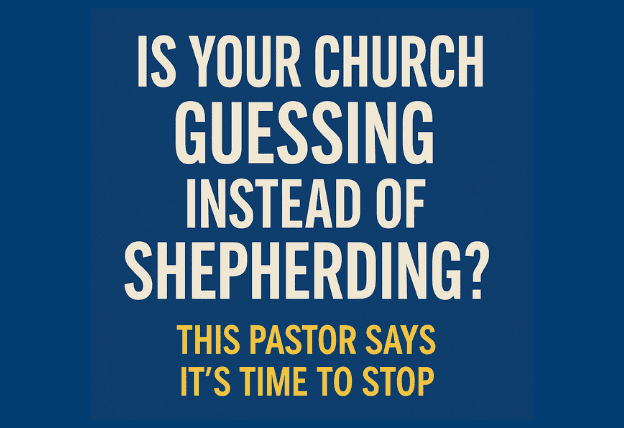
Let’s say I call to schedule an annual physical, and my doctor says, “Naw, you don’t need to come in. I have a good hunch about what you need. My office will call in some prescriptions to the pharmacy, and I’d like to suggest we take out your gallbladder.”
How would you respond? You’d probably tell the doctor, “You’ve lost your mind!” Without debate, that type of behavior would be medical malpractice at the highest level.
But are pastors doing the same thing in churches today? Are we approaching the people we serve and minister to with hunches and best guesses about what they need?
Consider: Pastors and other church leaders offer sermons and a range of programs, often without listening to discover people’s specific needs. We don’t take time to learn their dreams, aspirations, or hurts. We move forward without asking if any gaps exist in church members’ faith or beliefs. Although it may be a bit bold to state it this way, I suggest that approach is a form of spiritual malpractice.
A Medical Analogy
For several years, my primary care physician was Dr. David Player, founder of Health By Design and author of “Health Starts Now: A Backdoor Approach to Treating Faulty Immunity and Chronic Disease.” He never left my health to hunches. Dr. Player drew my blood, conducted bone density and stress tests, performed an ultrasound on my internal organs, and checked my vision, hearing, fingernails, toenails, and a few other things I’m not willing to talk about here. He also asked me a series of questions about not only my physical health but my spiritual health, mental health, relationship health, and vocational satisfaction. A checkup with Dr. Player was an all-day event.
Two weeks later, I would return to his office. Bringing along my wife, Rozanne, was mandatory. Dr. Player insisted that she stay dialed in on the state of my health. After all, holistic health isn’t a solo sport. At each year’s post-physical meeting, the doc gave me a 68-page hardbound book with my name on it. Page one introduced Dr. Player as “Your Shepherd to Good Health.” Next came the results of all those tests, plus an action plan tailor-made for me.
Dr. Player, a devoted Christian, shared with me his conviction that the church should take the same approach. He went so far as to say a church shouldn’t seek to grow until it has a plan to attend to everyone who comes under its care. As a pastor, those words pierced my soul. I knew the doctor was speaking truth—God’s truth. Proverbs 27:23 offers these instructions: “Be diligent to know the state of your flocks, And attend to your herds” (NKJV).
The Value of Assessments and Feedback
Seven years ago, I became the lead teaching pastor at Westside Family Church in Kansas City, Kansas. I was determined, in partnership with the wonderful team I serve alongside, to accept Dr. Player’s challenge. Our first task involved locating some tools to measure the health of the flock I serve as an under-shepherd to Jesus.
We chose two assessment tools that offered useful feedback to help our folks become and stay healthy. The first, Reveal, was created by The Willow Creek Association and is now owned by Gloo. The tool, which is unavailable at this time, asked congregants to identify where they are in their spiritual journey—from “exploring Christ” to being “Christ-centered.” Then it asks a series of questions about beliefs, spiritual practices, and virtues. Finally, people have an opportunity to share what catalyzes their spiritual growth and how their church is doing in assisting them.

